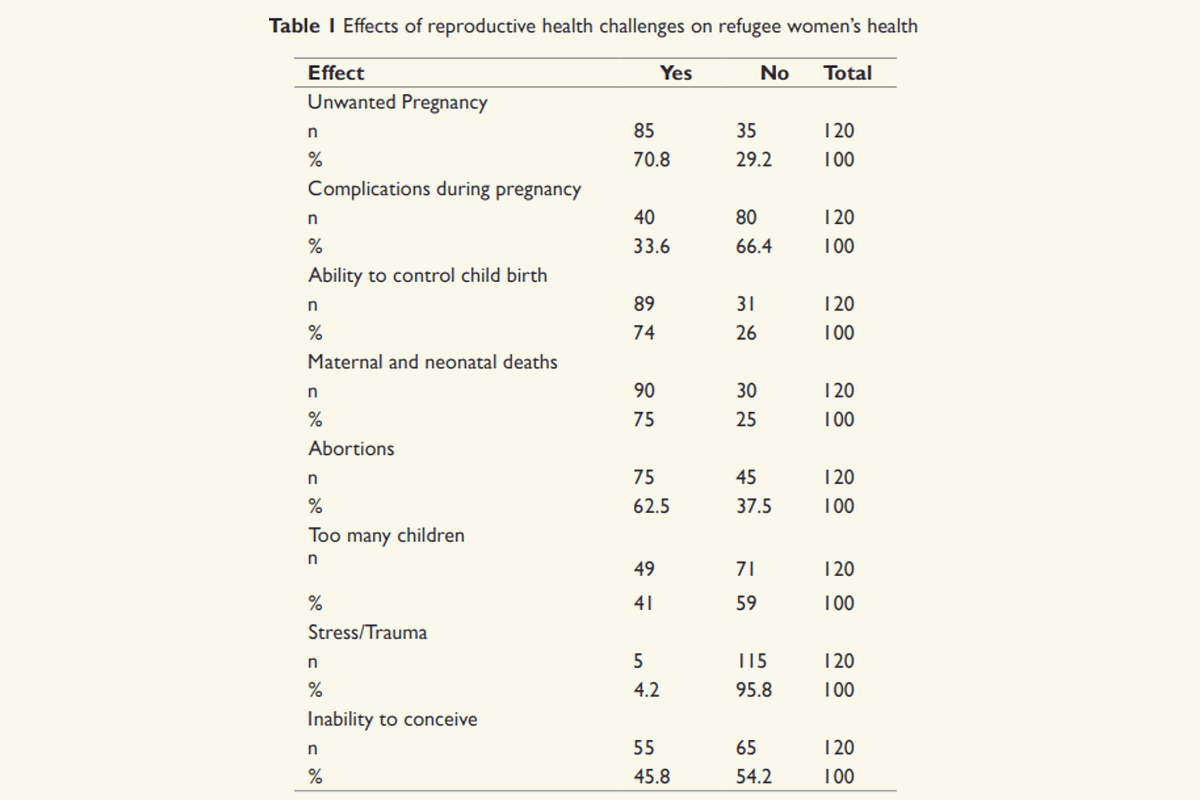
by Dorothy Forsac-Tata, Besong Joana Matsu
Sociology International Journal, 31 May 2023
Abstract
The difficulties faced by refugees cannot be over emphasized. After losing their homes and livelihood, they become vulnerable to hunger and face multiple challenges in the host countries. As such, their health are often compromised due to disruption of traditional health systems and an increase in risk factors.1 For women, their reproductive health challenges are compounded because of gender specific issues. These challenges are multifaceted and sometimes with severe consequences on their health. This paper reviews the reproductive health challenges of female refugees and how they affect the health of Cameroonian female refugees in the Adagom refugee camp in Nigeria. The study population consist of all female refugees of reproductive age (15-49) at the three Adagom refugee camps (Adagom 1, Adagom 2 known as Ukende and Adagom 3). Those considered were also those who had a registered status under the UNHCR. Informed by both the Andersen’s Behavioral Model of Health Centre Use and the People-Oriented Planning Framework, the study samples one hundred and twenty (120) Cameroonian refugee women from the three camps using the snowball method until saturation. Findings revealed that women faced enormous challenges with their reproductive health and these included poverty, distance, lack of knowledge, attitudes of health service providers, lack of support, violence, rape, and other unsafe practices. These challenges have multiple effects on women’s health including unwanted pregnancy, unsafe abortions, pregnancy complications (eclampsia and pre-eclampsia), infections, inability to conceive, stress and trauma, miscarriages and even death. It will therefore be imperative that reproductive health services be an integral part of refugee health package so as to reduce these effects on women’s health.



